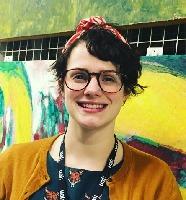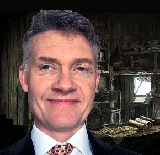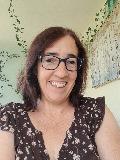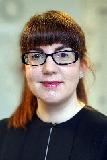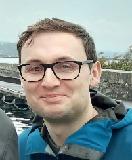Blog
Unless otherwise stated, content is shared under CC-BY-NC Licence
Inspiring curiosity: Increasing access to collections at University of the Arts London
Elisabeth Thurlow is Digital Preservation and Access Manager at University of the Arts London.
Whilst the first phase of the University of the Arts London (UAL) Digital Archives and Collections project aimed to introduce a digital preservation programme including the implementation of a new digital preservation system, the second phase focused on increasing access to the University’s growing digital collections. This led us to the development and recent launch of a new Digital Collections portal.
The university-wide Project focused on digital materials found in its archives, museums and special collections - which include images, video and sound recordings, and an increasing number of born-digital artworks.
‘Bringing the world’s treasures to your desktop’ – digitally preserving the works of Dylan Thomas (1914 - 1953) and Elizabeth Montagu (1718 - 1800)
Alexander Roberts is the Digital Humanities and Research Data Manager at Swansea University.

Over the last 3 years, Swansea University Library has been on a digital preservation journey to increase access and engagement with two important world-class physical collections currently held in the Harry Ransom Centre, University of Texas at Austin, and the Huntington Library, California.
National Libraries, Universal Challenges, and Digital Preservation
Daniel Greenberg is Product Manager for Digital Resources Management at Ex Libris.
The theme for World Digital Preservation Day this year is “Breaking Down Barriers,” highlighting how digital preservation supports expanding horizons for libraries and other institutions. For national libraries, this expansion comes with some unique considerations and best practices.
But let’s take a step back and look at the basic challenges national libraries face in managing preservation of their digital assets.
Digital Curation Lab: leveling up, shortly
Lamia Sassine is Digital Curation Lab Coordinator at the University of Salford
As a relative newcomer to digital preservation the theme Breaking Down Barriers really spoke to me. My background is in archaeology and museum studies, but I started to get attracted to digital curation during my PhD. My research investigated perceptions of Phoenician collections from 20 different museums, and I envisioned the best way to bring them together would be through a digital platform, but this is a story for another time.
What are we missing? Completeness checking with e-journals and why we should care
Micky Lindlar is Digital Preservation Team Leader at Technische Informationsbibliothek (TIB).
A few weeks ago I watched the recording of Helen Hockx-Yu’s excellent presentation on “The obsession with checksums”. In one of the slides Helen talked about “A matter of where to spend energy”, listing her top 5 priorities. One of those priorities is “overlooked things that have lead to data loss”, e.g. “not collecting content”. This really reminded me of the current work we – that is TIB’s digital preservation team – are doing around e-journals and completeness of metadata as well as content.
You might ask yourself now “what does digital preservation have to do with completeness checking and why should I care?”. Life is easy when you interact with a data producer who signs responsible for the completeness of a deposit. But what if you’re tasked to interact with a repository that you harvest data from? Or if you deal with really large deposits (e.g. more than 5 million articles)? And, as a collecting institution, do you blindly trust a manifest given to you by a publisher or do you need to cross-check? Things were easy in the analogue days. The library would receive a journal issue, all articles would be contained within that printed publication and at the end of the year all issues would be bound together in a volume. Not today, my friend!
Which checksum algorithm does everyone use? Introducing the NDSA Fixity Survey Report
Almost a year ago now, the DPC published a Technology Watch Guidance Note from Matthew Addis entitled ‘Which checksum algorithm shall I use?’. It was really helpful at the time to summarise and condense advice and good practice on checksums and their use in digital preservation (and of course help people to make that all important decision on which checksum algorithm to pick).
Without a doubt, checksums are of key importance to our work in digital preservation. Use of them is regarded as good practice (as encapsulated in models such as the NDSA Levels of Preservation and DPC’s Rapid Assessment Model and certification standards such as CoreTrustSeal and ISO16363), but there is still a gap in our knowledge.
How do we know exactly when to create them, which tools to use, how frequently to check them, which events would trigger their use, what to do in the event of a failure...and of course, which algorithm we should use to create them? Where is the step by step handbook to provide all the answers?
Of course, there isn’t one.
Digital Preservation of Community Archives: Breaking down barriers to digital preservation through training
Dr Deborah Thorpe is Education and Outreach Manager for the Digital Repository of Ireland
This autumn, the Digital Repository of Ireland (DRI) held an online introductory training programme in digital preservation for our members, with a particular focus on the training and community-building needs of community archivists. This course has been helping with breaking down barriers to digital preservation, by making topics such as appraising your digital collections for preservation, data protection, and metadata preparation understandable, relatable and accessible to all. ‘Understandable’, because we recognise that every individual who attends DRI training has a different level of existing knowledge of digital preservation processes; ‘relatable’, because sometimes it can be difficult to identify how the intricacies of topics such as GDPR or anonymisation relate to a particular digital collection; and ‘accessible’, because many community archivists are volunteers who do not have expanses of time or resources to spend on either undertaking training or preparing their collections for digital preservation.
Upskilling and upscaling: digital preservation at the Houses of the Oireachtas Library
Kate McCarthy is Special Collections Librarian and manager of digitisation projects at the Houses of the Oireachtas Library
It’s late in the evening. Do you know where your children are? And by children of course I mean all those digital files you’ve happily brought into existence in recent years. The documents, images, and datasets. The hundreds of thousands of tiffs, jpegs, pdfs, mp3s, mp4s and xml files. Are they under the supervision of a digital preservation system? Hanging out on a Cloud account? Loitering on a local server? Idling on an LTO? Waiting to be collected from an external hard drive in a desk drawer that you haven’t opened for two years?
Breaking down the barriers between refugee voices and the future
Tom Wilson is Associate Archivist (Digital Preservation) at the UN High Commission for Refugees
Breaking down barriers is something that often appears in the day-to-day work of UNHCR albeit, more often than not, in the metaphorical sense. Whether it’s providing shelter for refugees, access to healthcare, informing the public of the plight of refugees and other persons of concern or one of the many other activities that UNHCR carries out, UNHCR seeks to remove the barriers that can prevent people fleeing from conflict from reaching safety. Part of this work is done on the internet and by amplifying the voices of refugees or advocating on their behalf and this is where UNHCR’s web-archive comes in to help preserve this content for posterity.
Update on the work of the PREMIS Editorial Committee
Karin Bredenberg, Marjolein Steeman, Tracy Meehleib are part of the PREMIS Editorial Committee
 First of all, thank you for the feedback you have given us in response to last year's call to action! We also want to express our big thank you for the Brazilian Portuguese translation of “Understanding PREMIS” and the updates made to all of the other translations! We’ve been busy putting your feedback recommendations into effect and it’s fair to say that 2021 has been a very productive and--at the same time--a very strange year for the PREMIS Editorial Committee! We’ll start with the productive and end with the strange.
First of all, thank you for the feedback you have given us in response to last year's call to action! We also want to express our big thank you for the Brazilian Portuguese translation of “Understanding PREMIS” and the updates made to all of the other translations! We’ve been busy putting your feedback recommendations into effect and it’s fair to say that 2021 has been a very productive and--at the same time--a very strange year for the PREMIS Editorial Committee! We’ll start with the productive and end with the strange.

















































































































































